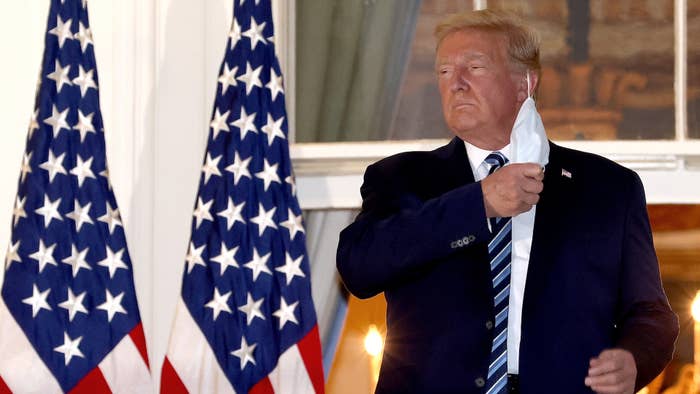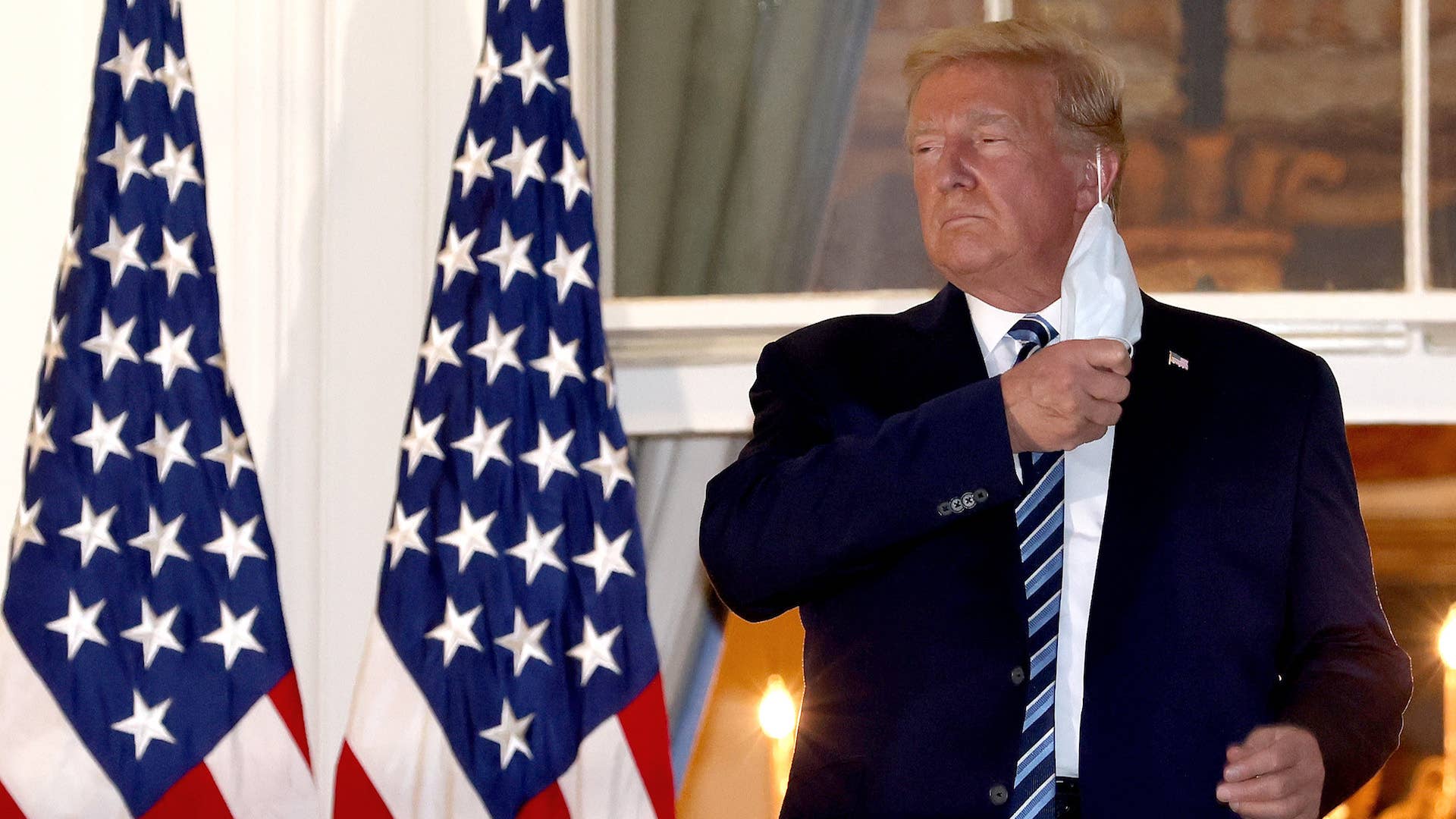
Donald Trump irresponsibly removed his mask and tucked it into his jacket pocket in front of the White House to pose for photographers upon his return from Walter Reed National Military Medical Center following a three-day stay.
Judging from his labored breathing, Trump is still dealing with symptoms related to COVID-19.
Here’s a longer video. Look at him, he can’t breathe. pic.twitter.com/nrkrQnWMri
Shortly after the photo-op, Trump posted two videos to his Twitter account. In one of them, he addressed the nation and continued to downplay COVID-19, which has so far killed over 215,000 Americans. "I learned so much about coronavirus and one thing that's for certain... don't let it dominate you. Don't be afraid of it," he said in the clip. Trump, who is certainly not immune to the disease or asymptotic, continued, "Maybe I'm immune, I don’t know." It was previously reported that Trump, who has been administered both dexamethasone and remdesivir, suffered from a fever and received additional oxygen.
According to AP reporter Jonathan Lemire, Trump didn’t put his mask back on when he stepped inside the White House. It didn’t take Trump’s reckless attitude Monday night to make those closest to him feel a little troubled. Vanity Fair reports Donald Trump Jr. is concerned about his father’s erratic behavior over the last 24 hours.
Don Jr. was reportedly “deeply upset” over Trump’s decision to risk his Secret Service detail contracting COVID-19 just so he can wave at his supporters outside of the hospital. “Don Jr. thinks Trump is acting crazy,” a source told the publication.
Don Jr. only grew more worried after witnessing Trump’s bizarre tweetstorm early Monday morning.
This time, however, Trump’s other children reportedly became just as bothered as their oldest brother. "They’re all worried," the source said. "They’ve tried to get him to stop tweeting." Don Jr. has reportedly been trying to stage an intervention with the help of Ivanka Trump, Eric Trump, and Jared Kushner.
According to the source, "Don said, 'I'm not going to be the only one to tell him he’s acting crazy.'"
Earlier today, White House press secretary Kayleigh McEnany became the latest person in Trump’s inner circle to test positive for the coronavirus, joining his assistant Nicholas Luna, his campaign manager Bill Stepien, and Chris Christie, the former New Jersey Governor who helped him "prep" for his first debate with Joe Biden.
Even as the number of people tied to Trump who have contracted the virus continues to rise, the New York Timesreports the White House will not conduct contract tracing for the Amy Coney Barrett SCOTUS "super-spreader" event at the Rose Garden.
The White House has prevented the CDC from getting involved and limited the scope of their efforts to notifying anyone who had close contact within two days of his COVID-19 diagnosis, as per CDC guidelines. However, this approach fails to take into account the clear impact of the Rose Garden event.
"You cannot argue against the fact that five or six people who attended that event all got infected, unless you argue that that was all random chance," Dr. Yvonne Maldonado, epidemiologist and contact tracing expert, told NYT. "There were a lot of people working at that event, and so they need to be contact tracing that whole event."

